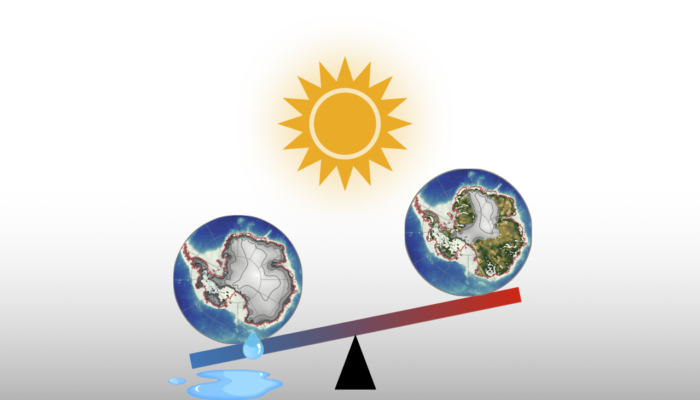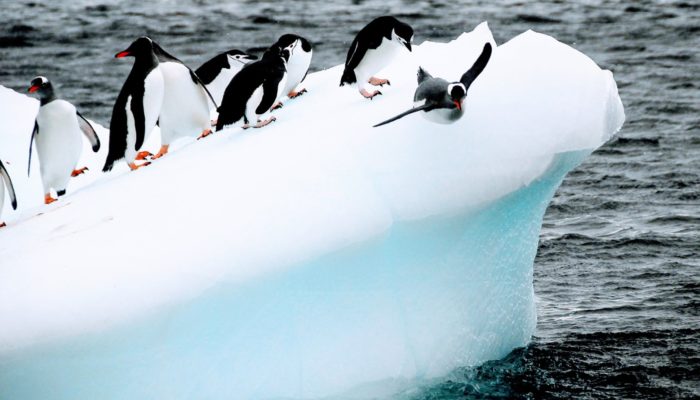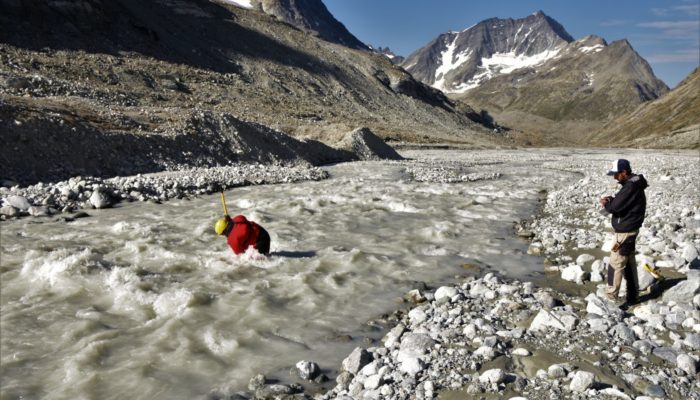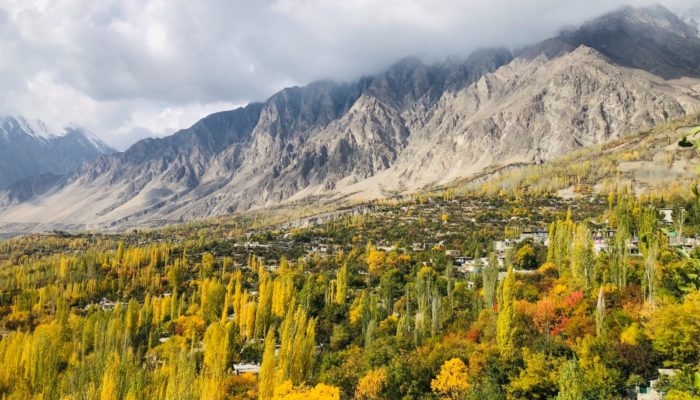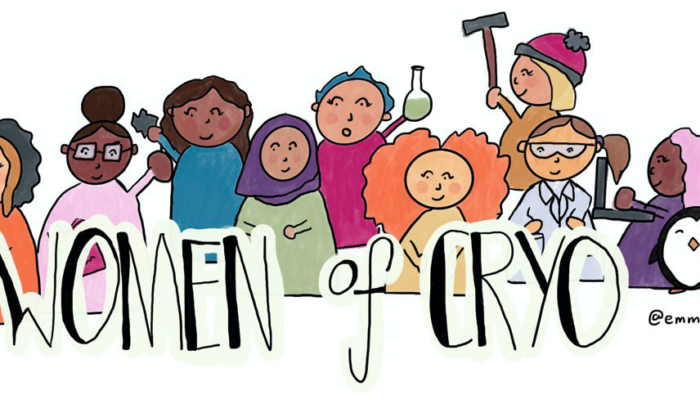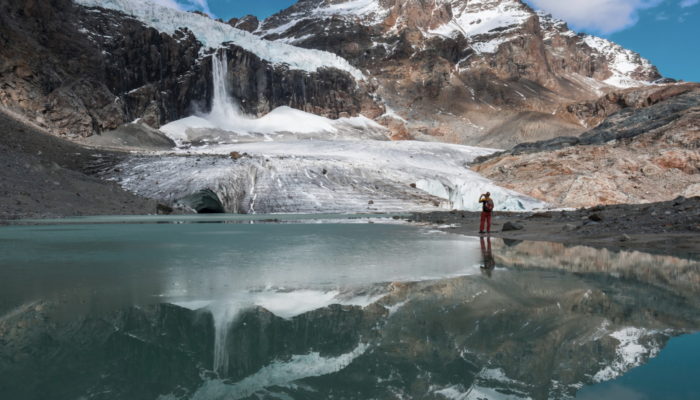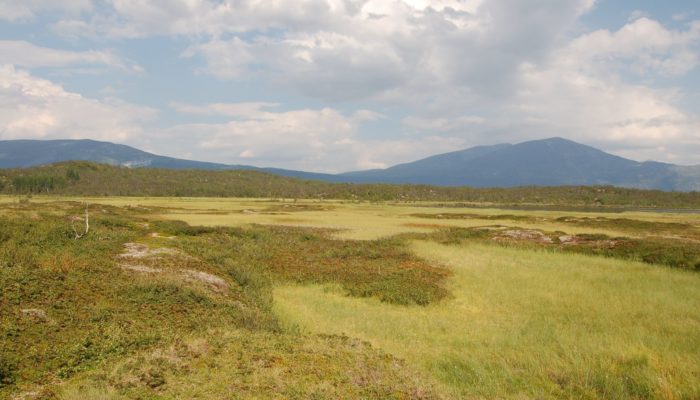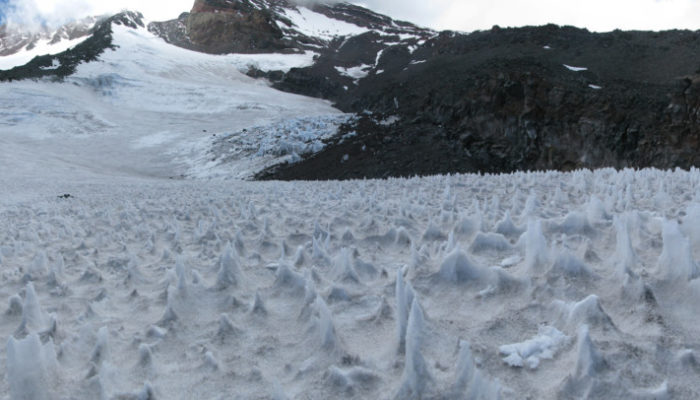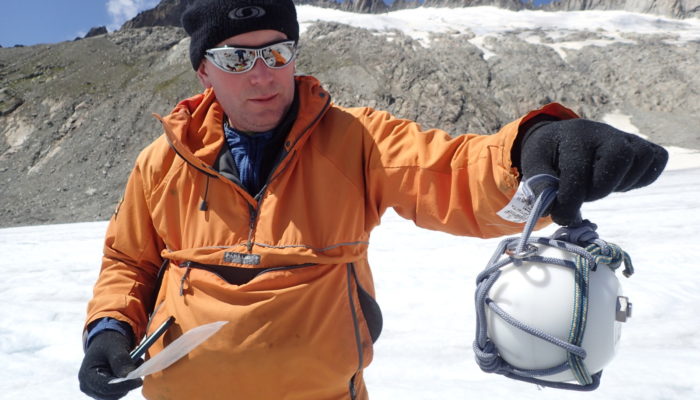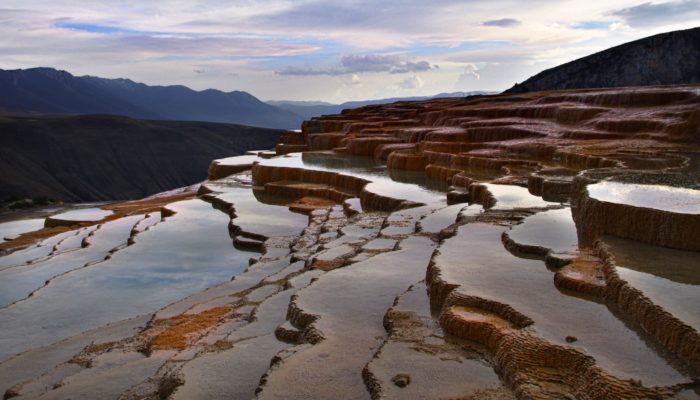Perhaps you have stumbled upon the word ‘hysteresis’ before, for example in connection with the stability behavior of our Earth’s large ice sheets and their long-term effect on global sea-level rise, or the long-term stability of the Atlantic Meridional Overturning Circulation, or even in another context outside earth/climate science. Or you might have come across this term during your studies, bu ...[Read More]
If you didn't find what you was looking for try searching again.
Cryospheric Sciences
How small changes can make a big difference: tipping points in Antarctica
As Antarctica’s mass loss increases, the threat of crossing tipping points both in the ice sheet and the surrounding Southern Ocean is increasing. But what actually is a tipping point? Have tipping points already been crossed in the past? And what might the future hold? What do we mean by a “tipping point”? Scientifically speaking, a tipping point is generally understood to be a threshold that, on ...[Read More]
Cryospheric Sciences
Running a live stream of proglacial processes
In Switzerland, nothing is really remote, but some places are more so than others. Dense infrastructure networks typically provide convenient access to research sites in the Alps where it is difficult to feel far away from home. However, this is not always the case… For us, our home for the summer is a bit different. We work at 2400 m above sea level in Southern Switzerland, in a narrow vall ...[Read More]
Cryospheric Sciences
The physical and social changes facing the mountainous populations of the Karakoram Range
As a child, Shakir remembers long extreme winters with heavy snowfall and dry blistering winds, where it was hard to play outside. He grew up in a village named Gulmit, located at an elevation of 2500 m, surrounded by the high snow caped mountains in the Karakoram Range in northern Pakistan. That was 30 years ago, when climate change was still not a cause of concern for the local people. Today, in ...[Read More]
Cryospheric Sciences
Women of Cryo II: Dr Lu Li
Women make up 50.8% of the worlds population, yet fewer than 30% of the world’s researchers are women. Of this percentage, BAME (Black Asia and Minority Ethnic) comprise around 5%, with less than 1% represented in geoscience faculty positions. The divide between women in the population and women in STEM needs to be addressed. Through a series of blog posts we hope to raise the voice of women in th ...[Read More]
Cryospheric Sciences
Did you know…about regenerated glaciers?
Ice caps, valley glaciers, cirque glaciers, piedmont glaciers, ice sheets… I’m guessing that if you are a glaciology enthusiast, you have already heard about these types of glaciers. But you probably don’t know anything about regenerated glaciers, am I right? Well, you are in the right place! Let’s find out more about this little-known glacier type. Classifying glaciers Glaciers are classified on ...[Read More]
Cryospheric Sciences
Climatic drivers of permafrost mounds in North American peatlands
Permafrost, or perennially frozen, peatlands are among the world’s largest terrestrial carbon stores and are particularly threatened by warming climates. Understanding how modern climate controls the distribution of permafrost peatlands is crucial for making confident predictions of their past and future extents. What are permafrost peatlands? Peatlands are wetlands that develop where cold, wet co ...[Read More]
Cryospheric Sciences
Climate Change & Cryosphere – Glacier retreat poses new challenges in the Central Andes
When you hear of Chilean glaciers, you probably think about the large glaciers of Patagonia. However, glaciers can be found further north in Chile as well (see this previous post). While the melting of the Patagonian glaciers mainly affects the global human population by contributing to sea level rise, the retreat of glaciers in central Chile affects the local human population directly in terms of ...[Read More]
Cryospheric Sciences
Exploring the hidden plumbing of glaciers with Cryoegg
Plumbing is something we take for granted: the pipes that bring us water to wash and drink, and the pipes that take the waste water away again. We see the taps and basins in our kitchen and bathroom – but the pipes are hidden away under the floor or inside the walls – and we mostly ignore them until there’s a leak or a blockage! It turns out that glaciers have plumbing too – and ...[Read More]
Cryospheric Sciences
Careers outside of academia
You’ve just finished your PhD or postdoc… now what? Perhaps you’re thinking of a non-academic career, but don’t know where to start, or which skills you need? Up to 70% of scientists move into non-academic careers after graduation (The Royal Society, 2010). But finding useful information and advice is hard. In today’s blog, we summarise the EGU Webinar ‘Careers outside of academia’ which took plac ...[Read More]

